
HORIST: Regime change in North Korea now a viable option
For decades, a centerpiece of U.S. foreign policy has been that we will not accept a nuclear North Korea – no way, no how. We were told that by virtually every president since the 1952 Armistice putting the Korean War on hold. Three generations of the Kim dynasty summarily ignored this direct demand of the international community. They even ignored the big stick of military intervention that President Teddy Roosevelt metaphorically expressed as the alternative to talking softly.
Diplomacy is much like a chess game where an objective does not seem obvious in early moves. The Trump administration has repeatedly stated that we are seeking de-nuclearization, not regime change – and this could happen if Kim Jong Un suddenly decided to scrap his nuclear program. That is not happening, however, and seems unlikely to happen.
There are a few more diplomatic moves to be made before regime change becomes the only option. We might call them the “little sticks.” There is tough talk, and more resolutions by the pin striped pants crowd at the UN – although that has seldom achieved much in any crisis. We can still offer North Korea “economic assistance” in return for ending its bomb making hobby. President Clinton, under the guidance of then former President Carter, already brandished that little stick and we saw how well that worked. There is also room for more severe sanctions. They have not worked in the past, and Kim Jong Un has indicated that no matter how severe, he will not let sanctions stop him in the future. One cannot help but wonder why there are still so damn many tough sanctions that have not been already imposed, but that is another issue.
It should be noted that during all these years of little stick diplomacy, the Kim regimes were not just developing atomic and hydrogen bombs to put atop their intercontinental missiles. As our country was leading from behind, North Korea was building a monstrous conventional weapons capability. This has become as much a threat to the citizens of Seoul as the A-bomb.
It is now the North Korean big stick that intimidates us and the world, and Kim Jong Un does not even have the courtesy of speaking softly. He is winning the diplomatic battle. After decades of promising that the will be no nuclear North Korea, the old guard internationalists, channeling Neville Chamberlain, suggest that there is no way to stop one of the world’s most dangerous regimes from being part of the nuclear family of nations. We must now refocus our diplomacy to détente, they say.
They naively believe that a nuclear build up in North Korea would only produce a stand off – the belief in mutually assured destruction that kept the U.S. and the old Soviet Union from lobbing atomic bombs at one another. But Kim Jong Un is not as rational as Nikita Khrushchev – as bad as he was. Such appeasement would not stop Kim’s ever-expanding military programs. He would quickly surpass such nuclear states as India, Pakistan and Israel to rise to the rank of Russia, China and the U.S.
We also need to understand that North Korea is already exporting military equipment to every terrorist group that can come up with the money – or not. It is more than likely that Kim would happily provide nuclear technology in the future. Not only would that make North Korea a major sponsor of anti-American, anti-European terrorism, but the leading proliferator of nuclear weapons throughout the despotic world.
With each new missile launch and earth shattering atomic test, the big stick option becomes more dangerous, with thanks to the incompetent execution of western foreign policy for too many years. While the old guard continues to say that military intervention is not a viable option, it may soon become the only option. We have no choice but to brandish the big stick in a credible manner – and that means the real possibility of using it.
President Trump has made it clear that he is sticking to the old policy of not allowing North Korea to stay nuclear. That is not a political policy, but a necessary security policy. Secretary of Defense Mattis made that perfectly clear in his statement as he exited the White House after a briefing session with the president. He said we do not want to annihilate North Korea, but in the same breath said we could.
Of course, the weak-kneed adherents of the old policy see the only choice as between letting Kin Jong Un rule over one of the biggest and more unstable military powers in the world — and hope he does not use it — or engage in a nuclear holocaust that will kill millions of people in South Korea, Japan, Guam and possibly the American west coast. However, Secretary Mattis correctly noted that we have many military options short of going nuclear.
Maniacal as Kim Jong Un may be, he surely understands that unleashing such carnage would most certainly result in the end of the Kim dynasty. At the bottom line, we can, as even President Obama said, “wipe North Korea off the face of the earth.” North Korea cannot reciprocate on the U.S. – at least not now. And, we should not diddle around until he has a battery of bombs and the missiles to strike every city in America.
The real factor to be weighed is what Kim Jong Un would do in the face of limited military action. What if we shoot down one of his missiles flying over Japan or too close to Guam? Or just take one or two out as a warning? What about a cyber attack on the North Korean defense infrastructure? Just enough military intervention to let Kim Jong Un know we mean business – and let China understand that, too.
If Pyongyang responded to a limited or symbolic military action with ANY assault on anyone, Kim would be signing his own death certificate. Even a U.S. surgical attack on his atomic facilities would make Kim a paper tiger or a dead dictator. Kim needs to avoid American military action at all costs, and we should understand that. He has an atomic ace in an otherwise bust hand.
That is in no way meant to minimize the risk or devalue the tragedy that potentially falls upon humanity, including our allies in the region. Japan is out of range for conventional weapons, and the one thing North Korea does not have is a powerful air force. Seoul, South Korea is in a much more vulnerable situation.
Our ace in the hole has been and continues to be China. If regime change is the only means of stopping a nuclear North Korea, China has every interest in making sure that such a change does not shift the balance of power by putting a military ally of the U.S. directly on its border. China is also very fearful of a multi-million person migration from North Korea that would most surely occur in the event of a full military conflict on the Korean peninsula.
Kim poses another serious threat to China. His build-up will necessitate the emplacement of massive defensive weaponry in Japan and South Korea, which coincidentally diminishes Chinese military capability. It would also likely mean Japan and South Korea developing their own nuclear capability.
Of course, an attack on Japan, Seoul or Guam would bring down the full might of the American military. It would assure the destruction of the Kim regime. Little noticed in Mattis’ statement, however, was the claim that the U.S. could respond militarily to a “threat,” not necessarily an actually attack.
President Franklin Roosevelt once noted that if you see a snake threatening to bite, one does not wait for it to do so. You destroy the snake before it bites. Are Kim’s words threatening enough? Is a test missile landing near Guam enough, or another flying over Japan? The Kim regime is a poisonous snake in the world community. Can it be coaxed to retreat or must it be destroyed?
A full military assault by the U.S. would likely produce a regime change more favorable to the U.S. – even the possibility of unifying the Korean peninsula under Seoul. Facing that prospect, China and the U.S. could … just could … cut a deal to oust the Kim regime for one that is still allied to China but without the nukes? This would be a regime that the U.S. and the greater international community could live with.
There should be no illusions about Kim’s ambitions. He represents an existential threat to America, and that threat will increase exponentially as his military might increases. He wants to take over South Korea. We need to stop that before he can, and regime change is quickly becoming that only option available.
While the aforementioned scenarios are unsettling, my own limited experience at the White House and with military strategic planning convince me that every one of the aforementioned options is being analyzed and considered. In this administration, nothing is off the table — nor can it be. At this point, the central question is: What IS left on the table?
POST SCRIPT: The growing tension between the U.S. and North Korea has gotten the lunatic left thinking we live with a Dr. Strangelove administration. Numerous of the media’s “panels of parroting pundits” have expressed concern that President Trump may just get pissed off and launch America’s nuclear arsenal. Be calm, he cannot. The President does not have the singular power to launch our nuclear missiles.
It is a complex procedure that requires several levels of authorization. An order from the President can be aborted at various stages by various people and even computer software. Just how that happens is a closely guarded secret. Long ago, legal and technical procedures were established to prevent a launch by a rogue President or general. Those who proffer such scenarios are simply ignorant or partisan fear mongers.





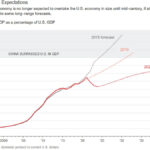

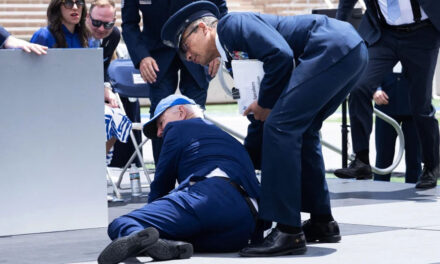


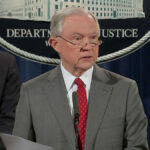




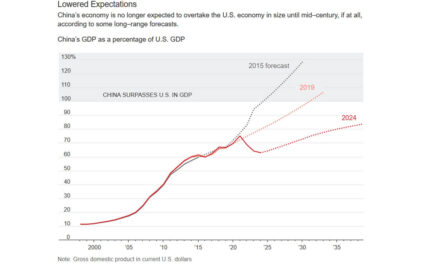
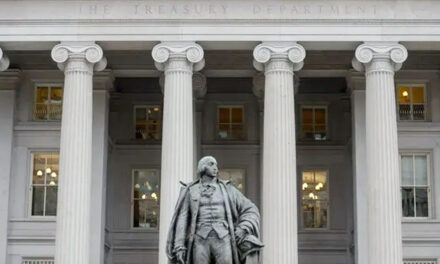






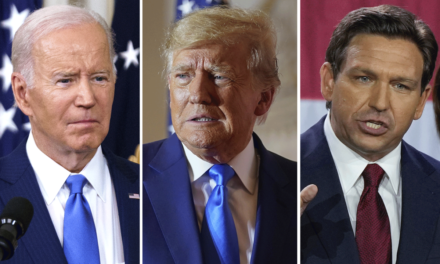

Just another ruse for taking jabs at Biden through alleged short comings of his. Ten days remaining in Biden's term…
I never said I WANT China to continue to own Panama. You made that up. First,I didn’t say it. Second.…
I absolutely do Not in any way, shape or manner fabricate ANYTHING you say. I do and will always tell…
Af: you are not even close to an accurate description of my comments. Matter of fact, you seem to see…
Wow! Jesus Frank wants China to continue to own Panama. China has been buying up our lands all over America,…